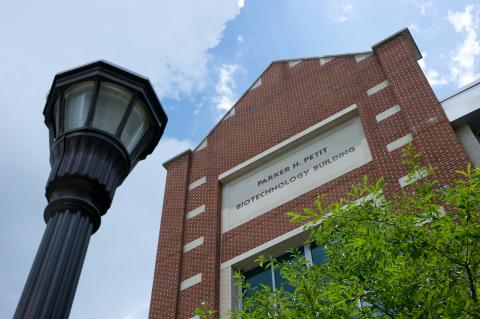event
Bioengineering Seminar Series
Primary tabs
"Implanted Neurotechnology to Understand and Restore Arm and Hand Function"
Jennifer Collinger, Ph.D.
Assistant Professor
Department of Physical Medicine & Rehabilitation
University of Pittsburgh
Watch via Livestream
ABSTRACT
After a cervical spinal cord injury, restoration of arm and hand function is a top rehabilitation priority. A brain-computer interface (BCI) can tap into sensorimotor information that remains intact in the brain and bypass the injured spinal cord to control an assistive device that may help the user regain function. Intracortical BCIs have allowed people to control reaching and grasping movements using their neural activity. However, BCIs users have primarily relied on visual feedback which may be insufficient for tasks involving object manipulation. Recently, we showed that intracortical microsimulation of somatosensory cortex can generate focal sensations that feel like they originate on the BCI users hand and that can be graded in intensity. Our current BCI study participant was able to use restored tactile sensations to improve performance on object transfer tasks. The time required to grasp the objects was reduced when ICMS feedback was provided as compared to visual feedback alone, likely due to increased certainty about the timing of object contact. Sensory feedback is particularly critical for dexterous and complex movements that are essential for many activities of daily living. We have also begun to investigate the role of motor cortex in modulating grasp force across a variety of task conditions. Across all experiments, we identified a large transient neural response during periods of active force application, as well as a tonic neural response during periods of constant force application. Interestingly, the relative strength of the transient and tonic neural components changes with task complexity suggesting a reallocation of cortical resources to accommodate the task requirements. This has implications for BCIs, which must account for contextual changes in order to maintain consistent performance.
BIO
Jennifer Collinger, PhD, is an Assistant Professor in the Department of Physical Medicine and Rehabilitation at the University of Pittsburgh and a Research Biomedical Engineer at the Pittsburgh VA R&D Center of Excellence. Dr. Collinger’s research interests are related to the use of neuroprosthetics to restore function for individuals with upper limb paralysis or loss. Specifically, she is developing intracortical brain-computer interface technology for individuals with tetraplegia. She also uses non-invasive imaging tools to study sensorimotor control and neuroplasticity after spinal cord injury or amputation.
The Bioengineering Seminar Series is co-hosted by the Parker H. Petit Institute for Bioengineering and Bioscience, and the Wallace H. Coulter Department of Biomedical Engineering at Georgia Tech and Emory University.
Groups
Status
- Workflow status: Published
- Created by: Colly Mitchell
- Created: 05/28/2019
- Modified By: Colly Mitchell
- Modified: 09/18/2019
Categories
Keywords
Target Audience

